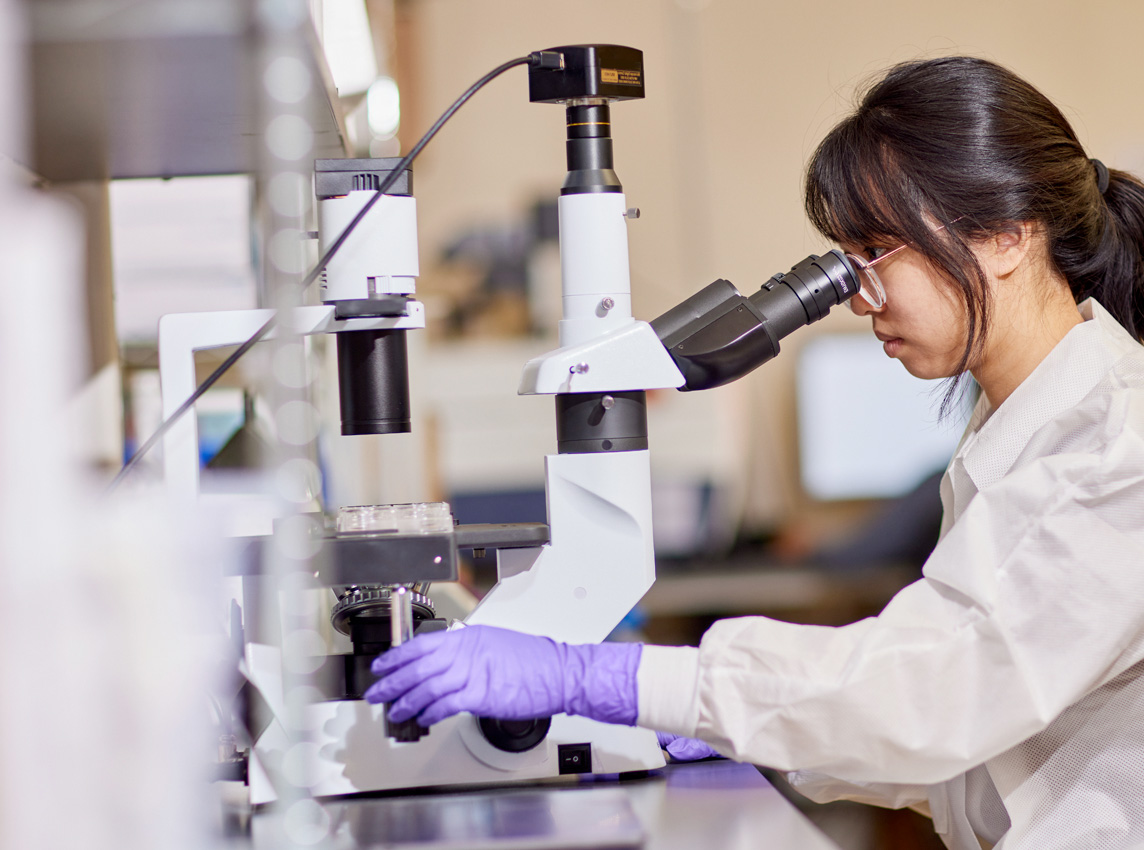
BIOSCIENCES
Next-generation drugs, diagnostics, and technologies to solve urgent medical needs
SRI Biosciences develops transformative approaches and platforms for challenging therapeutic problems. We conduct basic and translational research, have the breadth — and depth — to deliver the latest in biomedical research through technology development.
Our researchers have a rich legacy of collaboration with government agencies and industry partners that improve health outcomes and well-being around the world. SRI Biosciences projects range from high-impact, early-stage research to drug co-development with pharmaceutical and biotech companies.
200+Research and technical staff(40% PhDs)
200+Biomedical products moved to clinical trials
11Partnerships with National Institutes of Health Divisions
“Because we’re a nonprofit with a mission to make the world a better place, there’s a lot of flexibility in the types of projects we can pursue. We can do earlier stage research that may have higher impact without as much emphasis on the bottom line. And when we collaborate with pharmaceutical companies, it’s truly a co-development process—sharing expertise and innovating together.”
Kathlynn Brown, PhDPresident – Biosciences Division
New ways of thinking about human health
Uncommon in the world of tech development, SRI Biosciences brings together basic bioscience, applied research for early-stage IP generation, and translational development — moving the lab to the real world.
Real-world impact
-

Carol Green: Helping new drugs make the leap from possible to practical
Leading the effort to make sure effective therapies progress to human trials.
-

Gita Shankar: Formulating drugs for success
SRI’s director of pharmaceutical sciences works to bring new drugs safely to market while serving as a role model for women in STEM.
-

Laura Atleski Magda: Making clinical research accessible for all
The director of SRI’s Clinical Trials Unit explores how increased access to clinical research can improve public health.
Recent publications
-
Deficiency of orexin signaling during sleep is involved in abnormal REM sleep architecture in narcolepsy
Here, we determined the activity dynamics of orexin neurons during sleep that suppress the abnormal REM sleep architecture of narcolepsy.
-
Identification and characterization of screen use trajectories from late childhood to adolescence in a US-population based cohort study
This study will identify and characterize the subgroups of adolescents sharing similar trajectories of screen use from childhood to adolescence.
-
Biological sex influences sleep phenotype in mice experiencing spontaneous opioid withdrawal
We describe here a model of opioid withdrawal in mice that resembles the sleep phenotype characteristic of withdrawal in humans.
